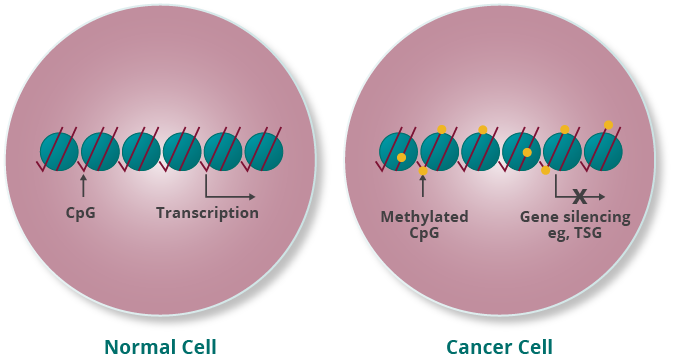
CpG islands are short stretches of DNA in which the frequency of the cytosine-phosphodiester-guanine nucleotide sequences are higher than in other regions. CpG islands are often located around the promoters of housekeeping genes, which are essential for general cell functions, or other genes that are frequently expressed in a cell. At these locations, the CG sequence is not normally methylated. The methylation of DNA nucleotides can have a profound influence on gene expression. Methylation of the promoter control regions of tumor suppressor genes can lead to uncontrolled proliferation and the development of malignancy. Gene methylation studies in patients with colorectal cancer have characterized a patient subgroup with a higher-than-expected frequency of abnormal methylation. This is referred to as the CpG island methylator phenotype (CIMP). Patients with CIMP can be sub-classified into 3 groups: CIMP1, CIMP2, and CIMP-negative. In the CIMP1 subgroup, 80% of patients have tumors characterized by MSI, and 53% have BRAF mutations. In the CIMP2 subgroup, 92% of tumors have KRAS mutations, while in the CIMP-negative subgroup, 71% of tumors have p53 mutations. Tumors with BRAF mutations and CpG island hypermethylation occur more frequently in patients with right-sided colon cancers.
